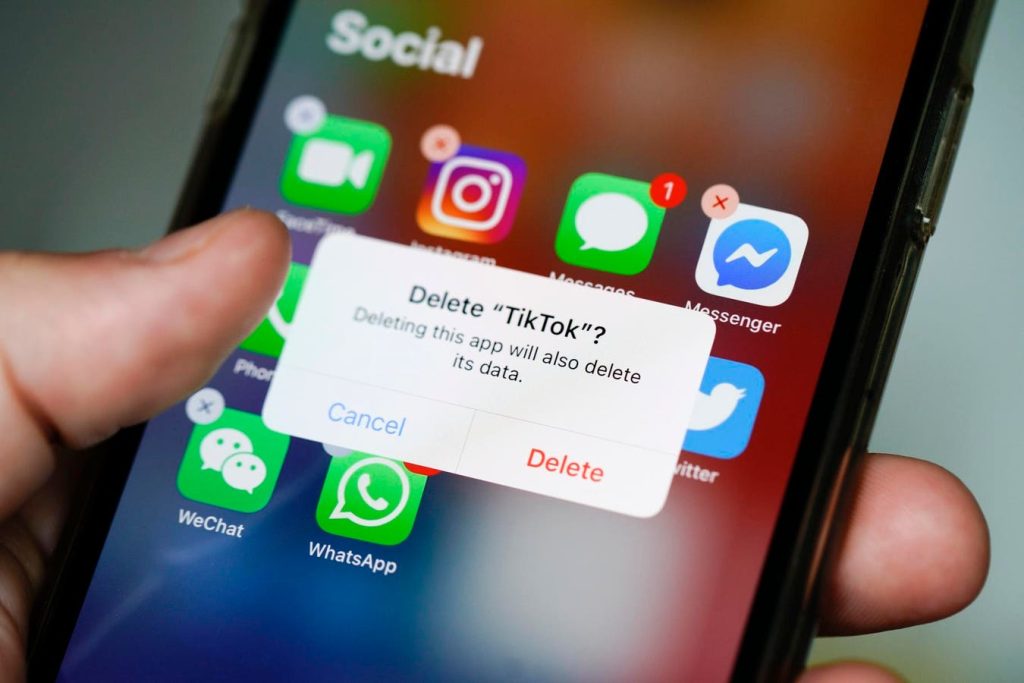TikTok Creators Race Against Time to Secure Data Amid Looming Ban Threat
The popular social media platform TikTok faces a potential nationwide ban under the Protecting Americans From Foreign Adversary Controlled Applications Act (PAFACAA). This legislation, fueled by national security concerns surrounding TikTok’s Chinese ownership, mandates that the company provide users with their complete data upon request before January 19th. This provision aims to safeguard creators’ content, allowing them to migrate their work to alternative platforms should TikTok become inaccessible in the United States. This crucial deadline has ignited a race against time for TikTok creators, urging them to take proactive steps to secure their digital livelihoods.
While TikTok offers an in-app data download feature similar to other social media platforms like Facebook and Twitter, questions remain about its compliance with PAFACAA’s stringent requirements. TikTok’s official documentation states that the downloadable data "may include" basic information like username, watch history, comment history, and privacy settings. However, PAFACAA goes significantly further, demanding the handover of all user posts, photos, videos, and "all other account information." This expansive definition potentially encompasses non-public data, including user settings, device information, social graphs, and even internal content moderation and classification flags. The ambiguity surrounding the completeness of TikTok’s standard data download has raised concerns among creators who rely on the platform for their income and audience engagement.
To ensure comprehensive data retrieval, creators are advised to take a two-pronged approach. First, they should utilize TikTok’s internal data download tool, accessible through the platform’s support resources. This initial step will secure readily available data elements. Second, and crucially, creators should submit a formal legal request through a dedicated form provided by TikTok. This secondary measure addresses the potential gaps between TikTok’s standard download and PAFACAA’s broader requirements. Within the legal request form, creators should specifically cite PAFACAA as the basis for their request and detail any specific data missing from the initial download. This meticulous approach aims to maximize data retrieval before the impending deadline.
The looming threat of a TikTok ban has already prompted proactive measures among creators. Many have begun directing their followers to alternative platforms, anticipating a potential disruption to their income streams derived from product promotions, advertising deals, and other forms of monetization. TikTok itself has voiced strong opposition to the ban, highlighting the potential economic consequences, particularly for small businesses that rely on the platform for marketing and outreach. The company estimates that a ban could cost small businesses billions of dollars, further underscoring the widespread impact of the proposed legislation. TikTok has vowed to pursue legal avenues, including an appeal to the U.S. Supreme Court, in an effort to prevent the ban from taking effect.
The legal battle surrounding TikTok reflects the escalating tensions between the United States and China over data security and technological influence. U.S. lawmakers have expressed concerns that TikTok’s Chinese ownership could expose user data to the Chinese government, potentially posing national security risks. TikTok, meanwhile, has repeatedly denied these allegations, asserting its commitment to user privacy and data security. The company maintains that it operates independently and that U.S. user data is stored securely within the United States, with robust safeguards in place to prevent unauthorized access.
The outcome of this legal and political standoff remains uncertain, leaving creators in a precarious position. The January 19th deadline adds urgency to their efforts to secure their data and explore alternative platforms. The potential ban represents a significant disruption to the digital landscape, impacting not only individual creators but also the broader social media ecosystem. The case highlights the complex interplay between national security concerns, technological innovation, and the evolving regulatory landscape surrounding social media platforms. The coming weeks will be crucial in determining the future of TikTok in the United States and the fate of the millions of creators who rely on it for their livelihood.


